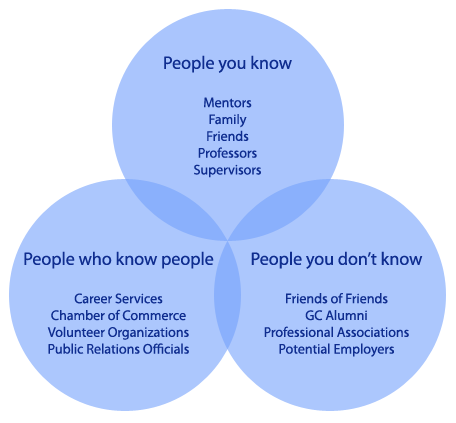Some final tips
Here are some final tips to conclude this essay on Business Networking.
Tuning in to your clients or prospects is important and to recap here are some final points worth noting.
Listening
Listening with understanding and empathy, also called active listening, is important to find out who your prospect is and what motivates them. What are they seeking? Do they have an issue you can help them with? In order to know this one needs the information so asking open ended questions and listening carefully to the answers or responses is most important.
One point here that is sometimes overlooked. Separate the process of taking information in from any judgement. Focus on understanding them and their business. One can sometimes be surprised by what one finds out this way. Things are not always as they first seem.
Let your contact tell their story first. This might be difficult if your contact has the same idea and is trying to get your story first. The simple way to handle this is to answer any question completely and honestly asked of you and then immediately ask a question in return. Practice controlling the conversation. Use head nodding and acknowledgements and open ended questions.

The use of acknowledgement to let the other person know that you heard and understood them is important. Even to the point of paraphrasing back to them your understanding of what they are talking about and confirming that is correct if required.
An important point that, if a client is telling you about a problem they are having and no immediate solution comes to mind then it is quite possible you do not have all the information. Continue to ask questions and dig further. Sometimes what you are being told will change with each question or query and then the solution may come to light. When this happens your altitude will soar in the mind of your client and you will become an authority figure.
Committing
If you state you will do something, offer some help or advice or some form of support, do so. Action does not speak louder than words. It screams. Always always always follow through on any commitment made, no matter how inconvenient it turns out to be. Always keep any promise made. Demonstrate being a ‘man of your word’. This builds trust and respect and offers a level of professionalism that will stand you in good stead in the years to come.
Negotiating
A time will come when you have the opportunity to negotiate with your contacts and business relationships. Sometimes not just with regards to sales and services but to the business relationship itself. This can extend to such mundane things as ‘finders fees’ for referrals and the like. If this type of activity is potentially on the table it is important to get the agreements all squared away as soon as a business relationship has been developed.
Negotiation is the activity of two or more parties determining the value and agreement of exchange between the parties concerned. Such arrangements, which it must be said should always be within the law, can be an exchange of services or products that equate to a ‘quid pro quo’ basis.
The important factors in negotiations are
1. Communication
2. Understanding
3. Agreement
Out of the three, communication is the most senior and the most important since it is the one that controls the other two. Having specific, open and informed communication leads to understanding and agreement. One cannot have understanding and agreement between parties without the communication factor. Therefore one’s communication must be of the highest quality, clear and concise and relevant to the subject at hand. It should contain no unrelated emotion and definitely no criticism or an unprofessional quality regarding other or another.
Each negotiation is a separate activity to any other negotiation. The circumstances, people and subject are going to be unique to that particular negotiation and, although the basics of negotiation remain the same, the subject matter, intentions and desires will be different with each negotiation. One is dealing with people each of whom has come to the negotiating table with their own radio station, WII FM (What’s in it for me). So it is entirely possible that negotiations may take more than one round to reach a satisfactory level or stage for all concerned. Because no satisfactory result was obtained in the first round does not mean that one throws ones hands in the air and forgets all about it. One can look for ways to continue the negotiations such as, what else can I bring to the table the other party or parties want?
Here are some points that can help towards a successful negotiation in the business network situation.
1. Parties who are, or at least may be, capable of agreeing on a negotiation
2. Interest by the parties in achieving an outcome
3. Mutual recognition and respect among the parties
4. Importantly, a basis for communication among the parties, including the ability to understand the importance’s of culture and language and the resources available to meet together.
5. The authority and power of all parties to commit to and deliver or the agreed arrangements
A successful negotiator needs to develop knowledge, skills and strategies that will enhance the process to deliver positive outcomes. This includes an understanding and acceptance of the various cultures and mind sets one might meet in business today as well as the ability to apply superior communication skills such as active listening and verbal skills.
Also the ability to ‘read’ the other parties speech and body-signals in meetings and the ability to cope with conflict and emotion.
A negotiator should have self-confidence and be able to apply assertive behaviours, without becoming aggressive yet remain cool, robust and resilient under pressure. He should also apply patience and flexibility. He should have the ability to understand proposals and their implications and be able to offer effective counter proposals.
A successful negotiator always starts a negotiation with collaboration in mind. This helps to avoid missing a potential immediate and advantageous solution, a win-win solution for all parties. Using consensus and collaboration with the intention in mind of creating a mutually rewarding agreement and result will also create a long term relationship.
Finally
The solution to potential problems and difficult situations and conflicts in negotiation or, indeed, in any developing business networking relationship is more communication not less. Communication is a universal solvent and continuing to communicate, with oneself initiating or getting another party to talk about their issues can, more often than not, lead to a solution to the issue at hand. One can then work through any problems systematically to a solution that satisfies all parties.
Applying the previously mentioned skills and work throughs brings more clarity and understanding. If you do not understand or see the problem they are having, get them to explain it more fully. Find out what they truly want. Even questions such as, “What goals did you have in mind when we started?” or “Where do you want to go from here?” “What will success look like to you?” or “What do you feel your options are for the future?” can often help to gain some clarity not just for oneself but sometimes for the other party also.
Sometimes, when we are working with potential clients, there can be too many problem-solving conversations with the focus on the past or on what was done.
Each party having a goal or purpose in mind and focusing on that can make a big difference in how the negotiation is broached and the result. A good question both parties can ask themselves is: “What can I bring to the negotiating table that will enhance the future prosperity of both parties?” Focusing on solutions, ideal scenarios, what will help the negotiating be a rewarding experience for all parties will lead to success in negotiating to the future prosperity of all parties.
And remember, if the negotiation becomes tough, more communication, not less, is the answer every time.


